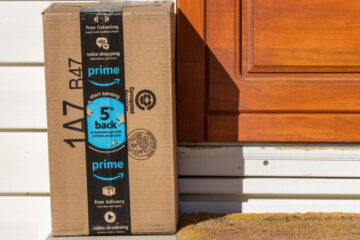Now, in 2025, it seems hard to imagine that a world might have existed without Twinkie the Kid, Fruit Pie the Magician, Captain Cupcake, and of course, King Dong the Ding Dong.
That reality, however, nearly came to pass with the company’s second bankruptcy, a Nov. 2012 filing. The company even went as far as to share an order from the U.S. Bankruptcy Court for the Southern District of New York, approving its emergency interim motion for the orderly wind down of its business and sale of its assets.
Related: Iconic ice cream chain unexpectedly closing locations
It was a slow, painful process that could have ended in disaster for Twinkies and other iconic treats.
“The wind down was necessitated by an inflated cost structure that put the Company at a profound competitive disadvantage. The biggest component of the Company’s costs was its collective bargaining agreements that covered 15,000 of 18,500 employees,” it shared at the time.
Snack cake companies, it turns out, use real workers and not Oompa Loompas or magic elves to make their products, and that was a drag on profits.
💵💰Don’t miss the move: Subscribe to TheStreet’s free daily newsletter💰💵
At the end of the day, however, Hostess’s labor force agreed to concessions, and the famed brands survived. Thousands of workers kept their jobs, and millions of kids got to continue saluting Captain Cupcake, marveling at Twinkie the Kid’s cowboy skills, and being amazed by the tricks of Fruit Pie the Magician.
Another snack cake company, albeit a less famous one, has also survived its Chapter 11 bankruptcy filing.
Hostess was saved at the last minute.
Image source: Shutterstock
Hearthside went through some real problems
Some companies operate behind the scenes, making their names less relevant. Hearthside, which was owned by H-Food LLC, made wonderful snack products consumers loved, but it did so for other brand names.
The company filed for Chapter 11 bankruptcy protection in November, showing nearly $2 billion in debt that it hoped to eliminate or restructure. Some of its problems came after an investigation into the company using child labor at its factories.
More bankruptcies:
Popular restaurant and bar chain files for Chapter 11 bankruptcyPopular athletic shoe chain files for Chapter 11 bankruptcyAward-winning cosmetics brand files for Chapter 11 bankruptcy
“Hearthside said that it never knowingly employed underage labor in its facilities, and that it had cut ties with third-party staffing agencies and strengthened its employment practices after a February 2023 New York Times article reported that migrant children worked in unsafe conditions at Hearthside’s factories to make Chewy granola bars and pack bags of Lucky Charms and Cheetos,” according to a Reuters story.
The company, however, managed to work with its creditors and lenders and emerge from Chapter 11 bankruptcy with a much healthier balance sheet.
Hearthside gets a new name and new money
As it emerged from Chapter 11 bankruptcy, Hearthside changed its name to Maker’s Pride. So, in reality, Hearthside had a child labor scandal, while Maker’s Pride has a fresh balance sheet in that sense.
A quick Google search shows lots of stories about Maker’s Pride being the new name for Hearthside, but nothing on the search pages references the scandal. The company isn’t a brand name like Hostess, however. Instead, it manufactures for other companies.
“Maker’s Pride is the leading contract manufacturer and producer of convenience foods, including baked, refrigerated, and frozen foods, sweet and salty snacks, and nutrition bars. The company serves as a full-service provider of food packaging services for many of the world’s premier brands and is the largest private bakery in the industry,” it shared on its website.
Post-bankruptcy, the company will remain headquartered in Downers Grove, Illinois. Maker’s Pride’s production network includes 27 facilities.
The newly named company comes out of Chapter 11 with a much stronger balance sheet.
Related: Popular whiskey brand files for Chapter 11 bankruptcy
“Through its financial restructuring, the company eliminated approximately $2 billion of funded debt, substantially reducing interest expense and positioning the business for significant long-term growth. In addition, Maker’s Pride is emerging with approximately $600 million of liquidity, including $200 million of new money through an Equity Rights Offering and approximately $190 million of additional capital from a new asset-backed loan facility,” the company shared in a press release.
It’s now majority-owned by a group of its existing lenders, including funds managed by Apollo and Oaktree Capital Management, L.P.


